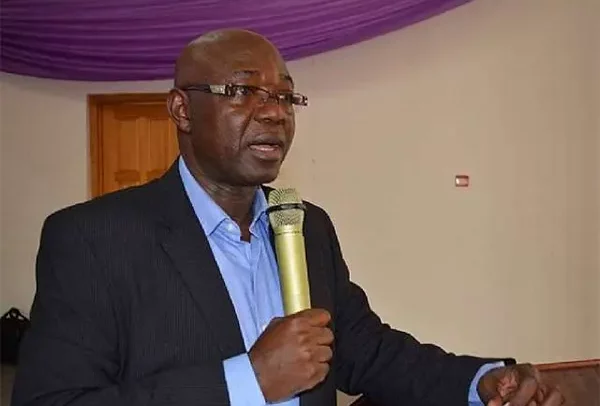Akwasi Oppong-Fosu
A Governance and Public Policy Analyst, Akwasi Oppong-Fosu, has called for a globally coordinated anti-corruption agenda rooted in ethical leadership, citizen empowerment, and institutional reform.
The former Minister of Local Government and Rural Development made the call when he delivered the keynote address during a virtual Anti-Corruption Roundtable Forum co-hosted by the Africa Global Chamber of Commerce and the University of South Carolina’s Sonoco International Business Department.
Speaking on the theme “Towards a New Anti-Corruption Agenda: Lessons from Diverse Stakeholders in Africa and the West,” he said that corruption is not merely a bureaucratic flaw, but a deliberate assault on human dignity and development.
Citing alarming global statistics, the former minister highlighted that corruption drains over $2.6 trillion annually from the global economy, which constitutes more than 5% of global GDP, with developing countries losing an estimated $1.26 trillion every year.
He said, “Corruption is a direct attack on human dignity. It robs nations of opportunity, weakens institutions, and undermines public trust.”
Dr. Oppong-Fosu also indicated that Africa alone loses $10 billion annually to corruption; funds that could have transformed the health, education and created jobs for the continent.
He drew attention to high-profile international scandals such as Malaysia’s Development Berhad (1MDB), the Panama and Pandora Papers, and cases involving former French President Nicolas Sarkozy and US Senator Bob Menendez.
Dr. Oppong-Fosu further argued that corruption is not unique to Africa but rather a global pandemic requiring global response, pointing out Ghana’s own challenges, referencing data from studies that suggest that Ghana loses an estimate of over GH¢9 billion annually to corruption, tax evasion, and smuggling.
He also called for the need to dismantle illicit financial flows (IFFs), which drains Africa of billions of dollars with the complicity of Western financial institutions.
“While African leaders are rightfully held to account, those who receive and protect illicit wealth often go untouched. This double standard must end,” he pointed out.
He, therefore, proposed an anti-corruption framework which includes reinforcing institutional autonomy, promoting ethical leadership through asset declarations and lifestyle audits, leveraging technology like artificial intelligence (AI) and blockchain, enhancing global cooperation as well as empowering citizens, media, and whistleblowers.
Dr. Oppong-Fosu emphasised the urgency for leadership transformation, urging a shift from transactional and clientelist politics to citizen-centred governance, devoid of cronyism but on the basis of merit.
“Corruption is not destiny. It is a decision repeated, tolerated, and reinforced. But integrity is also a decision, principled, courageous, and consistent,” he added.
The meeting brought together academia, policymakers, business leaders, and civil society actors from both Africa and the Western countries to reflect on practical strategies to tackle systemic corruption.
By Ebenezer K. Amponsah


